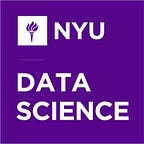Dah-tah or Day-tah? Analyzing the global Americanization of British English
CDS prof. Bruno Gonçalves & company use data from Twitter and Google Books to analyze the English language
When speaking to the British Council in 1995, Prince Charles made an extraordinary claim. “American English,” he exclaimed, “is very corrupting.” He went on to argue that British English must uphold its position as the world’s language. But 22 years on, the results from CDS faculty fellow Bruno Gonçalves’ data-driven study of the global Americanization of English may ruffle His Royal Highness’ feathers.
In “The Fall of the Empire: The Americanization of English,” Gonçalves, along with professors Lucía Loureiro-Porto, José J. Ramasco, and David Sánchez ask some powerful questions.* How is English used around the world, both in formal and informal contexts? And, do postcolonial dialects — such as Nigerian English, India’s Hinglish, or Singapore’s Singlish — draw from American or British English?
The team began their investigation by compiling a list of American and British words. Then, they created a dataset comprised of over 200 million geo-tagged tweets globally from 2010 to 2016, and the Google Books repository of books produced by both British and American publishers since 1800. Using this data, they calculated the global presence of British and American English according to two metrics: spelling and vocabulary.
Predictably, they found that British English influence on spelling is strongest in its former colonies, like Australia, India, New Zealand, and South Africa, since their schools typically subscribe to British English. But when it comes to vocabulary, Americans have the global upper hand. The same postcolonial countries which subscribe to British spelling actually use American vocabulary more often, and the same tension between British spelling and American vocabulary also exists in Western Europe. This is likely due to the global dominance of American culture and the fact that several European cities today are major transportation hubs and tourist destinations, like Milan and Paris.
Overall, then, the data suggests that the English language is becoming increasingly Americanized. But the researchers wanted to go even further. Can we pinpoint when this split between American and British English occurred, and visualize how Americanized English evolved over time?
Returning to their data set, they measured the average ratio per year of American and British words in the Google Books data set. Their timelines confirm historical evidence: for example, it shows that the rapid increase of the Americanization of English occurs around 1828, when Noah Webster first published what is more commonly known today as America’s Merriam-Webster Dictionary.
Another interesting instance is the sudden decline of American vocabulary and spelling ratios from 1960 to 1970. The momentary dip, they explain, hints at the brief Britishization of American English — a phenomenon that they attribute to the massive influx of European immigrants that fled to the US after WWII. (If British English wants to become the world’s language again, does this data suggest that how migration and border control are key factors that will determine its future?)
Perhaps Prince Charles’s dream, then, was half-realized. Like a seed that blooms into a many-petaled sunflower, English has sprouted into Englishes, where dialects like Chinglish, Singlish, and Hindish combine American vocabulary and British spelling with idioms and words from their first language. English is still, indeed, the lingua franca — just not the version that he wanted.
*Lucía Loureiro-Porto is from the Spanish Philology Department at the Universitat de les Illes Balears, while José J. Ramasco and David Sánchez hail from the Interdisciplinary and Complex Systems Physics Institute (IFISC) at the same university.
by Cherrie Kwok
Originally published at cds.nyu.edu on 13 July 2017.
